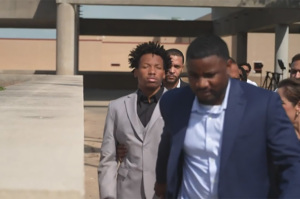Of Consciences and Cakes: A Response to Kirsten Powers on Religious Liberty and Gay Marriage
Political columnist Kirsten Powers has earned the respect of the Evangelical community. The story of her conversion was an unambiguous home run. She's also responsible for helping raise attention about the atrocity of the Kermit Gosnell case.
She's a sharp, intellectually honest thinker who does a good job of keeping conservative evangelicals on their toes. I don't know Kirsten well, but in October, I was honored to moderate a panel with her and other leading thinkers on the subject of religious liberty.
Her most recent column, though, doesn't fit with her commendable work on international religious freedom. Conflating theological categories, her column missed the concern that Evangelicals have over the creeping hostility to religious liberty, particularly in the context of gay rights.
I won't take time to review her column in length, so I suggest you read it.
But the essence of her argument is this: In the context of legislatures trying to brace for the coming day of a fifty state same-sex marriage ruling, Christians are arguing for religious liberty legislation that is tantamount to "Jim Crow" laws. The concern is over advocacy for language that strips homosexuals of basic rights and creating de jure segregation.
Let me say upfront, some legislation contains confusing bill language and is indeed in need of clarification. Few dispute that fact. I don't think this debate is or should be about denying gay persons public services available to the general public. That's deplorable.
Were a national fast-food chain to begin prohibiting homosexuals from dining in their facilities, I would no longer dine there myself. Even the Washington state florist, for example, is well documented to have provided flowers for gay customers. What's at stake in this context is when individuals who provide material and artistic craft for weddings are then forced to take their talents and their creative abilities and use them for purposes that go against their consciences.
The mistake is this: The idea that forcing persons to participate in activities they consider sinful is the equivalent of Good Samaritan mercy ministries.
Jesus was a friend of sinners, the argument goes, so Christians should sacrifice their "rights" for the sake of loving and serving their neighbor, the dispossessed, the marginalized.
Jesus was a friend of sinners, indeed, but Jesus wasn't a friend of sin. His infectious holiness led him to love and befriend sinners, but all of this was aimed toward a particular end.
And the Pharisees and their scribes grumbled at his disciples, saying, "Why do you eat and drink with tax collectors and sinners?" And Jesus answered them, "Those who are well have no need of a physician, but those who are sick. I have not come to call the righteous but sinners to repentance." (Luke 5:30-32)
Jesus has in mind, notice here, repentance unto salvation.
There's no place in the Scriptures where Jesus mandates his followers to forsake their consciences or either celebrate or be complicit in sin. Jesus says to love all and serve all. He doesn't say to love and serve by ignoring sin. As a matter of fact, the Scriptures expressly forbid this.
According to Andy Stanley, who she quotes in the article, "Serving people we don't see eye to eye with is the essence of Christianity. Jesus died for a world with which he didn't see eye to eye. If a bakery doesn't want to sell its products to a gay couple, it's their business. Literally. But leave Jesus out of it." This is a distortion. Again, the debate here is not about denying gay persons access to public goods or services. It's about weddings.
The problem Stanley and Powers overlook, though, is that objections to lending one's creative talents for practices the Bible condemns is about obedience to Jesus. We "can't leave Jesus out of it" in how we live out the fullness of our Christian faith. Moreover, because Jesus affirms the creational structure of marriage (Matthew 19:4-6), for Christians, weddings aren't just a service, but a profoundly significant symbol for the Christ-Church union (Ephesians 5). Getting marriage right means also getting wedding ceremonies right.
Religious liberty exists in the first place to allow someone to discharge what he or she perceives as a duty. As Cardinal Newman famously said, "conscience has rights because it has duties."
The instances of cake bakers, florists, and wedding photographers being asked to lend their services to same-sex unions seems harmless enough. But they have a duty to obey what their conscience tells them is true. But also consider: If Christians can be compelled to lend a craft to something their conscience objects to, what can't they be compelled to participate in? We're talking about precedent; and the cases before us are bellwether test cases about whether private actors can be forcibly mandated to go against their conscience.
It's truly a disappointment when religious liberty is reduced to bigotry. The looming conflict over sexual freedom and religious liberty is an uncertain future, one that tends to look more foreboding for the future of Evangelical public engagement.
As my friend and First Things editor Matthew Schmitz tweeted, "The Selma-Stonewall analogy makes Bull Connors of Catholic bishops, black Pentecostals, peaceful Mennonites."
Schmitz is exactly right. The rationale adopted by arguments similar to Powers leads to the inevitable conclusion that Christians are irrational supporters of bigotry, something even Andrew Sullivan has walked back in recent days.
The issue before us isn't unlike what the church has faced in times past. In times past, entry into the civil sphere and marketplace were contingent on Christians paying homage to idols or pinching incense before the imperial cult.
The question now is whether the state should use its police powers to be able to force people to do what they believe is a denial of their deepest convictions. That's not just a question for Christians by Christians, but of the common good for everyone else.
As a friend of mine said to me: "Good thing Kirsten has freedom to express her values through her God-given talents, or else someone like me might tell her to write what I want her to write no questions asked. After all, it's just a job."
This column was originally published in First Things.





























